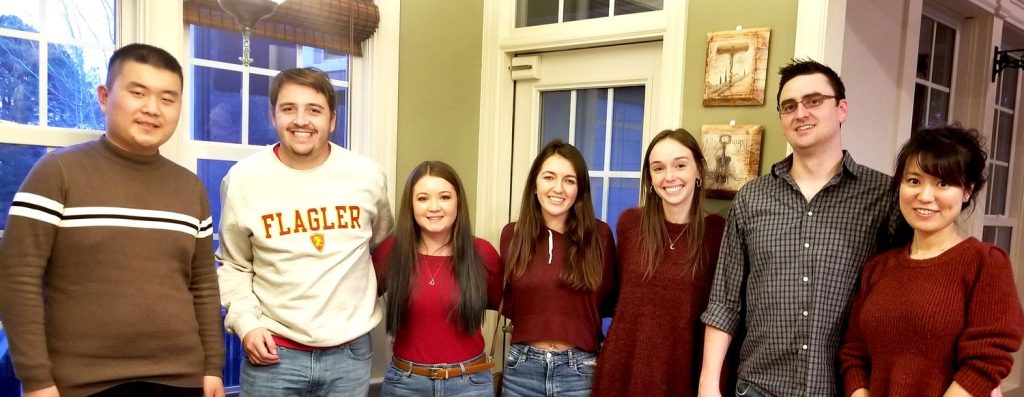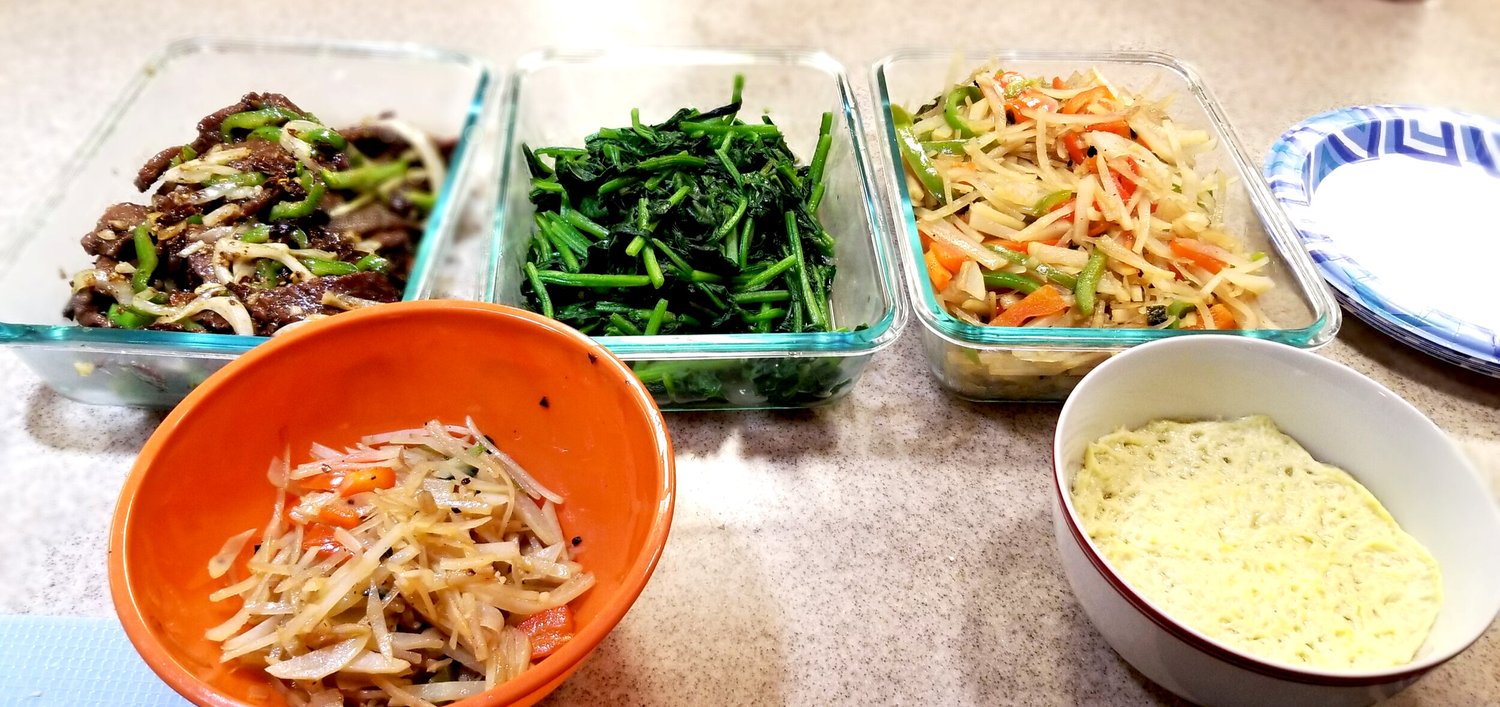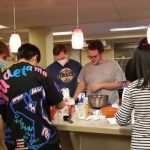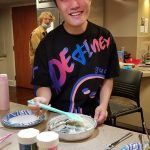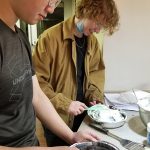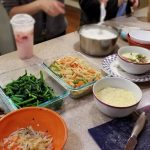COOKING
For international students, cooking in American kitchens poses several challenges. First, there are different ways to measure liquid and dry ingredients (e.g. teaspoon, tablespoon, ounces), temperature conversions to be aware of (the US uses the fahrenheit scale for oven temperatures), unfamiliar equipment (electric stoves and microwaves), and unfamiliar names for cooking methods (e.g. sauté, poach, bake, stir fry).
In New Mind’s three-week cooking module, students practiced the skills of measuring, chopping, frying, and baking to produce easy-to-make dishes that were affordable for a university student on a budget. The first cooking lesson introduced students to common equipment and tools needed in the kitchen along with key English vocabulary and measuring conversions. Students learned how to use flour tortillas to make quick breakfast, lunch and dessert wraps by varying the ingredients in the fillings. In the next cooking lesson, students followed a recipe to make “the best chocolate cake in the world.” They were joined by American students who were curious about all the activity and laughter taking place in their dormitory’s shared kitchen, which made for a fun intercultural experience. For our last cooking lesson, students followed online video tutorials to create easy rice bowl dishes with meat, vegetables, and eggs, which many claimed reminded them of home.
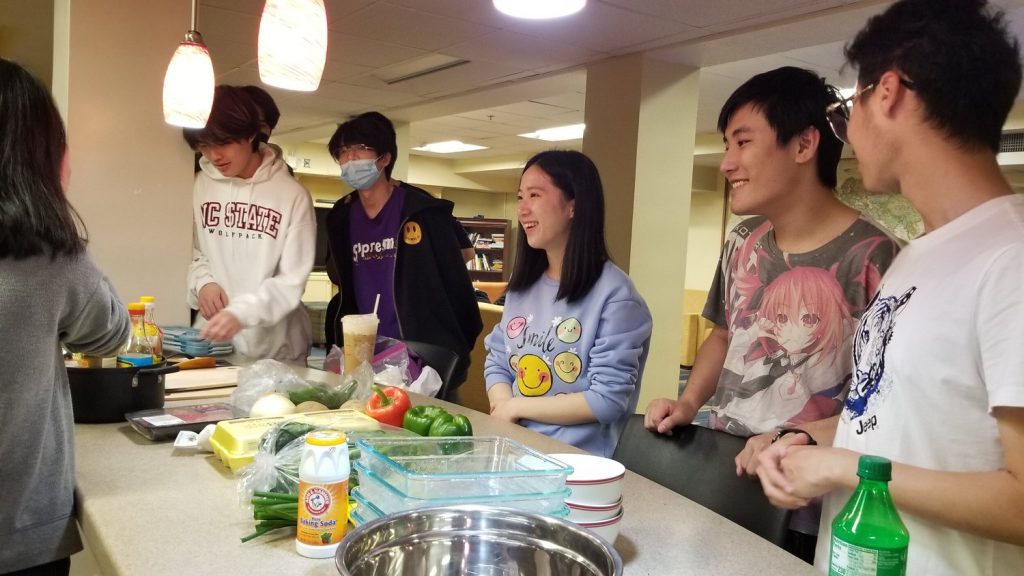
Participating students’ experience and comfort level in the kitchen varied greatly. Some students impressed the group by showing off their chopping skills acquired from parents and grandparents. Other students relied on their reading and observation skills to learn basic cooking techniques. All of the students enjoyed the camaraderie and friendship that can only come by cooking and sharing a meal together. By the end of the three-week experience, students came away with increased confidence and interest in producing tasty meals for themselves and their friends.
CAREER
In the three-week career module, students explored a variety of career development topics to prepare them for their future and allow them space to begin thinking about their long-term goals. The first career lesson was an introduction to career where students learned how to write resumes and cover letters and could ask questions about how these documents were used in the US to get jobs and internships. Students were able to choose the topics discussed at the second lesson which included internship search, salary, professional correspondence, and the differences between the US and China workplaces. For our last career lesson, students met in Talley Student Union where they were able to sit down with a career development professional from NC State’s Career Development Center to ask questions and to learn more about the resources available to them as NC State students.
Students acquired a great deal of knowledge regarding their future career development journey. Many students felt more prepared to continue their academic career in their majors and began thinking about next steps such as finding an internship for next year to broaden their experience. Other students used the time to explore majors that were connected to jobs that interested them and ultimately would lead them to future employment. They were able to think about preferences such as specific work schedule, salary ranges, desk jobs vs field jobs, and much more! By the end of the three-week career development journey, the students came away with valuable skills as well as the realization that it is never too early to begin preparing for one’s career!
